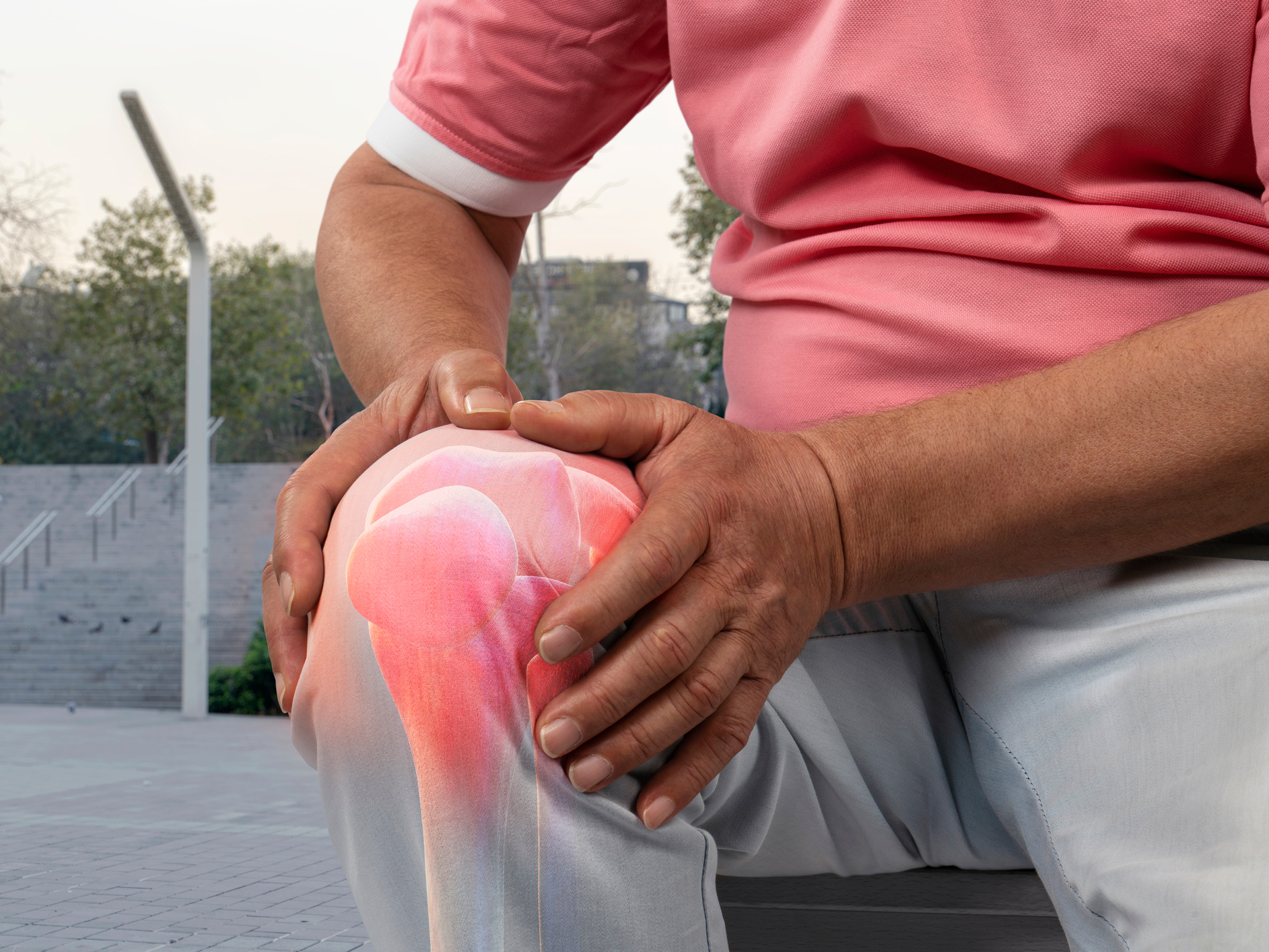Get Easy Health Digest™ in your inbox and don’t miss a thing when you subscribe today. Plus, get the free bonus report, Mother Nature’s Tips, Tricks and Remedies for Cholesterol, Blood Pressure & Blood Sugar as my way of saying welcome to the community!
Your doctor’s treatment for hip and knee pain may cause more harm

Osteoarthritis, the most common chronic joint condition, affects over 30 million U.S. adults, according to the Centers for Disease Control. Older age is a definite risk factor, although it can affect someone at any point in their life.
In severe osteoarthritis, the cartilage at the ends of bones has broken down, and a person is left with bone-on-bone friction every time they move the affected joint. Needless to say, a joint with no cartilage is extremely tender and painful.
Hand, spine, knee and hip joints are most commonly affected by OA. Joints become swollen and deformed, inflamed, and stiff. As things get worse, a joint may either lock up or give out without warning, causing falls and injury.
Besides the knee, the hip joint is most commonly affected by osteoarthritis. No surprise, then, that those are the two joints you hear about most in connection with joint replacement surgery.
Treatments are available that ease the pain of OA, including cortisone injections. But recent research has revealed that these steroid injections are more dangerous than we’ve been led to believe.
Steroid injections lead to joint replacements
A study at Boston University School of Medicine identified some serious complications of corticosteroid injections to joints affected by OA, particularly when the disease has reached a more serious stage.
The researchers, led by Dr. Ali Guermazi, conducted a search of patients they had injected in the knees and hips during 2018.
They found that eight percent had complications, with ten percent in the hips and four percent in the knees. These complications included stress fractures, progressive osteoarthritis or even the collapse of joints.
In other words, the injections could speed up the disintegration of an already compromised joint, leaving no option but to have a total knee or hip replacement.
“We’ve been telling patients that even if these injections don’t relieve your pain, they’re not going to hurt you. But now we suspect that this is not necessarily the case,” says Dr. Guermazi.
What’s more, he points out that physicians don’t routinely tell their patients about the possibility of joint collapse or other complications as a result of receiving these injections.
“This information should be part of the consent when you inject patients with intra-articular corticosteroids,” he says.
This is old news
This isn’t the first time that we’ve heard about steroid injections having unwanted side effects.
Just a few years ago, researchers at the Henry Ford Hospital in Michigan found that epidural steroid injections routinely given for back pain caused postmenopausal women to lose bone density six times faster than normal.
Clearly, this common practice was putting many women at greater risk for fractures of the spine. The risk to women who were already at high risk for osteoporosis was even greater.
How to care for your joints
As with most things, your very best option is to do all you can, naturally and safely, to prevent the need for steroid injections.
Collagen supplements are a great way to strengthen the cartilage in your joints.
Regular physical activity should be a mainstay of your efforts at keeping your joints healthy. It will keep your joints lubricated, improve circulation and strengthen the muscles that support your joints.
Traditional Chinese Medicine has a lot to offer in terms of relieving arthritis pain. Here are some information and resources from Dr. Mark Wiley.
Editor’s note: Have you heard of EDTA chelation therapy? It was developed originally to remove lead and other contaminants, including heavy metals, from the body. Its uses now run the gamut from varicose veins to circulation. Click here to discover Chelation: Natural Miracle for Protecting Your Heart and Enhancing Your Health!
Sources:
- Cortisone injections for hip and knee pain are more dangerous than was thought — The Telegraph
- New Evidence: Hip, Knee Steroid Injections More Dangerous Than Thought — Boston University School of Medicine
- Using Cortisone Shots for Inflammation — Verywell Health
- Effect of Epidural Steroid Injection on Bone Mineral Density and Markers of Bone Turnover in Postmenopausal Women — Spine













